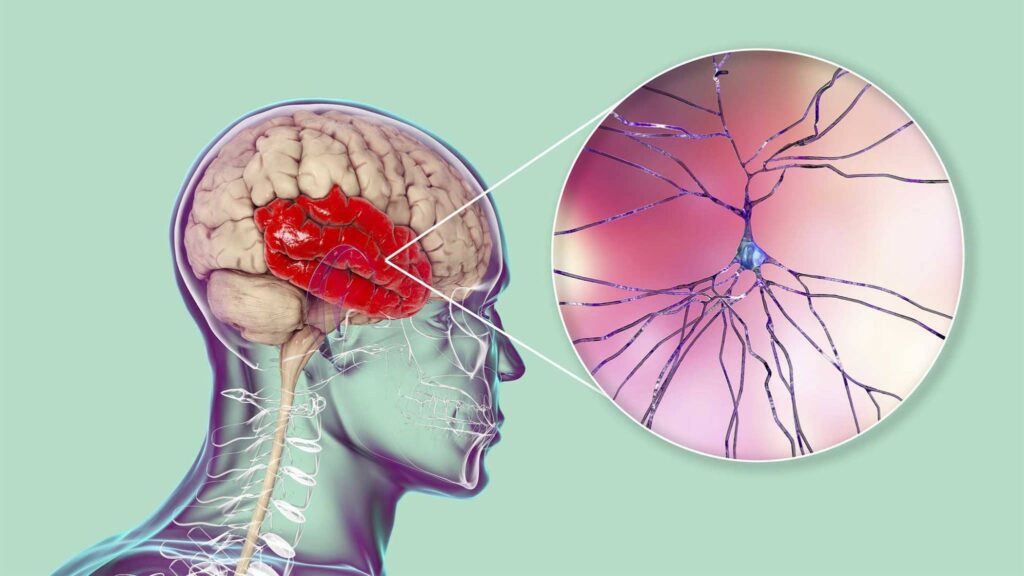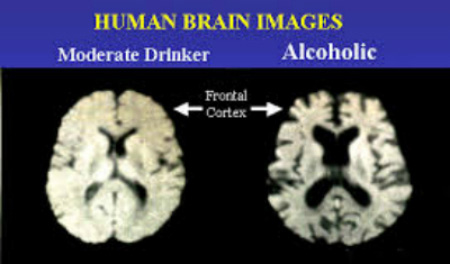What happens when you drink heavily?
Wernicke-Korsakoff Syndrome is a serious issue for our parents who heavily imbibe now or were heavy drinkers earlier in their life. Basically Wernicke can level out but it does not completely go away. Korsakoff is the second part of a two part syndrome and it changes the gait of their walk and weakens them to the point that they are very wobbly and unstable while standing. This is when alcohol effects have really taken the body and this part rarely goes away. The syndrome together is the effect of alcohol damage to the brain and is terminal.
Drinking alone does not cause it. Excessive drinking over a prolonged time is the cause.
Wernicke-Korsakoff Syndrome (WKS) is one name for 2 conditions that often happen together.
Wernicke is encephalopathy and it is often accompanied by Korsakoff syndrome. It is thought to be different stages of the same disease.
A deficit of vitamin B1 or thiamine is the culprit. Thiamine or vitamin B1 helps the brain turn sugar to energy. When there is a deficit of this vitamin the brain does not function well. It typically comes on suddenly and immediate treatment is needed. Symptoms include confusion, loss of muscle coordination, and trouble with vision. Korsakoff syndrome happens slowly. It is a long term, ongoing problem that damages the part of the brain that handles memory. WKS is typically associated with chronic alcoholism. Alcohol use inhibits thiamine absorption, and heavy drinkers normally have poor dietary habits. It may have hereditary aspects as well but the most common presentation is a chronic alcoholic patient who is poorly nourished.
Changes that occur may be subtle but knowing of them can help you recognize them:
Lethargy Drowsiness Inattentiveness/indifference Mental confusion Vision problems Muscle weakness Muscle coordination issues, especially walking/gait Tremor Recent or short-term memory difficulties Exaggerated storytelling Agitation More acute symptoms that may indicate the need for more immediate medical attention include rapid heartbeat, low blood pressure, low body temperature, hallucinations, delirium, or stupor. Schedule an appointment if any of these symptoms are apparent and make sure that the family member has an advocate with them. Since alcoholism is, many times, an ism that is not shared with even those closest to the person experiencing it, it is essential that the truth is provided to the physician in order for the alcoholic to receive the proper care. Honesty will, quite possibly, be the difference in whether help is received and can save the person’s life. Withholding information can only make matters worse and result in shortening that person’s life.Prognosis
Treatment is critical and time sensitive. What happens when you drink? Wernicke-Korsakoff Syndrome for those who drink.If diagnosed and treated early, some or sometimes all symptoms can be reversed. Once it becomes chronic recovery is less certain. Stopping alcohol use and ensuring a nutritious diet may prevent additional brain and nerve damage. Memory function can be slow to improve and recovery is usually incomplete. In later stages, damage to the brain is more likely to be irreversible and individuals will most likely have lasting problems with memory and gait which can be presented as lack of muscle coordination and numbness or weakness in limbs. Without treatment Wernicke’s encephalopathy can be incapacitating and life-threatening causing death in 20% of patients. In 85% of survivors, it progresses to Korsakoff syndrome. If patient continues to use alcohol and follow a poor diet the condition and symptoms will worsen.Treatment
Thiamine replacement therapy administered as soon as possible. Implementing consistent, good hydration and nutrition while abstaining from alcohol is the key. Resources:- Photo reposted here and great resource for telephone help and more information is from our hero’s at ARK Behavioral Health – BUILDING A FOUNDATION FOR RECOVERY WITH INTEGRITY, TRANSPARENCY AND COMPASSION
- The photo and more reading about Wernicke-Korsakoff Syndrome from Standard of Care!
Easing the Cost of Housing is easy with the Professionals at Golden Placements:
Golden Placements helps you manage resources and takes care of the leg work for finding your best living situation so you can enjoy your best Golden Years. GPS has ideas gathered over years of experience by being Senior Life Specialists. Portland Senior Living and their various options from our Golden Girls specialists are IS NO COST. Community living and finding the right living choice for you or your loved one is important. We help you navigate the details. Here are more resources to help you learn more about our services: Here are more resources to help you learn more regarding Alcoholism and Aging and this Life Transition:- National Library of Medicine (NLM) study of Alcoholism and Aging Life Transitions – Effects of age and life transitions on alcohol and drug treatment outcome over nine years
- National Library of Medicine (NLM) Facts on Seniors Aging with Alcoholism
- Golden Placements Adult Services – Life Transitions Short Term Memory Loss
- Look forward to Golden Placement new blog post on how to deal with someone with Wernicke Korsakoff Syndrome – What happens when you drink?
Diane Delaney, Placement Specialist Extraordinaire

LaVona Tomberlin, Senior Placement Specialist

 Gwenn McNeal2023-03-09Golden Placement Services answered! It’s really difficult to have to place an aging parent into a facility, but our family knew it was time. So I did some research, called 15 facilities, and managed to get on one wait list. I also called two companies that assist with finding homes, and they said they could not help. We were concerned we wouldn’t find a place, and if we did, it could be a very poor choice for our dad. Then I was given Golden Placement Services phone number and I spoke with a lovely woman named LaVona. That’s when everything changed! LaVona listened to our family’s needs, was understanding, and within days, she had arranged places for us to visit. How she found them, I don’t know, but she did! She met us there, listened some more, answered questions, and offered sage advice. We will forever be grateful for Golden Placement Services help in making this very tough decision. We absolutely know that my dad is in the right place to spend the rest of his life. And, we wouldn’t have that assurance today, had we not been connected with their wonderful service! They have blessed us greatly and we are sharing their information with others we know who are going through the same process.
Gwenn McNeal2023-03-09Golden Placement Services answered! It’s really difficult to have to place an aging parent into a facility, but our family knew it was time. So I did some research, called 15 facilities, and managed to get on one wait list. I also called two companies that assist with finding homes, and they said they could not help. We were concerned we wouldn’t find a place, and if we did, it could be a very poor choice for our dad. Then I was given Golden Placement Services phone number and I spoke with a lovely woman named LaVona. That’s when everything changed! LaVona listened to our family’s needs, was understanding, and within days, she had arranged places for us to visit. How she found them, I don’t know, but she did! She met us there, listened some more, answered questions, and offered sage advice. We will forever be grateful for Golden Placement Services help in making this very tough decision. We absolutely know that my dad is in the right place to spend the rest of his life. And, we wouldn’t have that assurance today, had we not been connected with their wonderful service! They have blessed us greatly and we are sharing their information with others we know who are going through the same process. Maureen S.2022-10-18Our family is so grateful for Diane and her company. They have helped us, two times find placements for our family members. We are now working now to find a great situation for another elderly family member.. Best thing, THEY CARE about each client and their wellbeing... THANK YOU, Diane
Maureen S.2022-10-18Our family is so grateful for Diane and her company. They have helped us, two times find placements for our family members. We are now working now to find a great situation for another elderly family member.. Best thing, THEY CARE about each client and their wellbeing... THANK YOU, Diane Addison Inman2019-05-31What a great resource for seniors in this area. Great, honest work. Very knowledgeable.
Addison Inman2019-05-31What a great resource for seniors in this area. Great, honest work. Very knowledgeable. Denise R2013-03-23They were very helpful and while being professional, kind and caring. They were thorough in trying to find the best arrangement for our situation and followed-up to make sure client's new arrangements were satisfactory. I highly recommend them.
Denise R2013-03-23They were very helpful and while being professional, kind and caring. They were thorough in trying to find the best arrangement for our situation and followed-up to make sure client's new arrangements were satisfactory. I highly recommend them.








